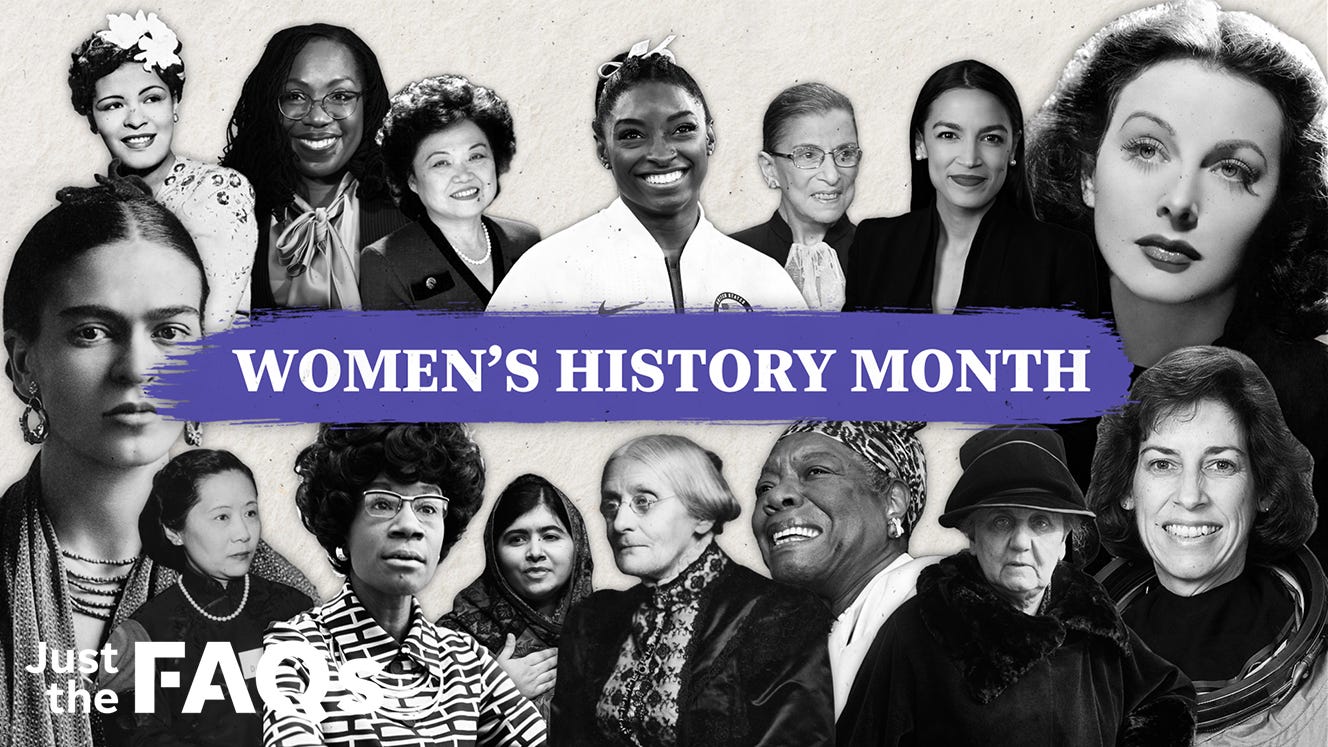"Women's History Month: Honoring the Legacy of Trailblazing Women"

March is Women's History Month, a time to celebrate and honor the contributions that women have made to history and society. This month-long observance first began in the United States in 1987, after being established by Congress. Since then, it has grown to become a global event, with countries all over the world recognizing and celebrating the achievements of women.
Women's History Month is an important opportunity to reflect on the progress that has been made towards gender equality, and to acknowledge the many women who have fought for and continue to fight for women's rights. It's a time to remember the women who have broken barriers and shattered stereotypes, paving the way for future generations of women to achieve their dreams.
One of the most well-known figures in women's history is Susan B. Anthony. Anthony was a suffragist and women's rights activist who played a key role in securing the right to vote for women in the United States. Her tireless work and advocacy helped to inspire generations of women to fight for their own rights, and her legacy lives on today.
Other notable women in history include Marie Curie, who was the first woman to win a Nobel Prize and made groundbreaking contributions to the field of science, and Rosa Parks, who became an iconic figure in the civil rights movement when she refused to give up her seat on a Montgomery, Alabama bus in 1955.
Women's History Month is also an opportunity to highlight the contributions of women who may not be as well-known, but whose work has had a significant impact on society. For example, Grace Hopper was a computer scientist who developed one of the first programming languages and played a key role in the development of early computers. And Shirley Chisholm was the first Black woman elected to Congress, and ran for president in 1972, breaking down barriers for women and people of color in politics.
While we have made great strides towards gender equality, there is still work to be done. Women continue to face discrimination, harassment, and unequal treatment in many areas of society, including the workplace, politics, and the justice system. Women's History Month is an opportunity to acknowledge these issues, and to recommit ourselves to the ongoing fight for gender equality.
In conclusion, Women's History Month is a time to celebrate the achievements of women throughout history, to recognize the work that still needs to be done to achieve gender equality, and to inspire future generations of women to continue fighting for their rights. It's a time to remember the women who have come before us, and to honor their legacy by working towards a more just and equal society for all.





